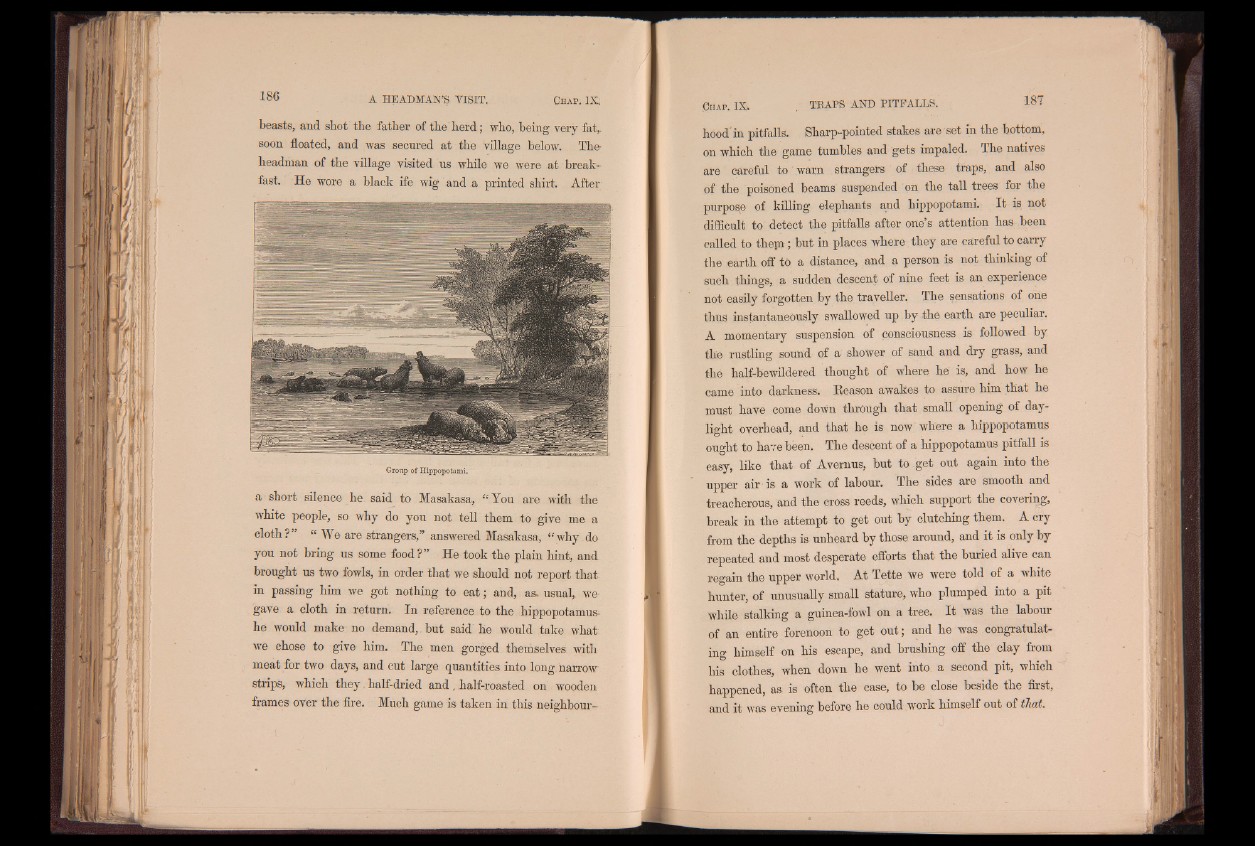
and shot the father of the herd; who, being very fatr
soon floated, and was secured at the village below. The
headman of the village visited us while we were at breakfast.
He wore a black ife wig and a printed shirt. Afterhood
Group of Hippopotami.
a short silence he said to Masakasa, “ You are with the
white people, so why do you not tell them to give me a
cloth ?” “ We are strangers,” answered Masakasa, “ why do
you not bring us some food?” He took the plain hint, and
brought us two fowls, in order that we should not report that
in passing him we got nothing to e a t; and, as. usual, we
gave a. cloth in return. In reference to the hippopotamus;
he would make no demand,, but said he would take what
we chose to give him. The men gorged themselves with
meat for two days, and cut large quantities into long narrow“
strips, which they. half-dried and, half-roasted on wooden
frames over the fire. Much game is taken in this neighbourbeasts,
in pitfalls. Sharp-pointed stakes are set in the bottom,
on which the game tumbles and gets impaled. The natives
are careful to warn strangers of these traps, and also
of the poisoned beams suspended on the tall trees for the
purpose of killing elephants and hippopotami. I t is not
difficult to detect the pitfalls after one’s attention has been
called to them ; but in places where they are careful to carry
the earth off to a distance, and a person is not thinking of
such things, a sudden descent of nine feet is an experience
not easily forgotten by the traveller. The sensations of one
thus instantaneously swallowed up by the earth are peculiar.
A momentary suspension of consciousness is followed by
the rustling sound of a shower of sand and dry grass, and
thé half-bewildered thought of where he is, and how he
came into darkness. Reason awakes to assure him that he
must have come down through that small opening of daylight
overhead, and that he is now where a hippopotamus
ought to have been. The descent of a hippopotamus pitfall is
easy, like that of Avernus, but to .get out again into the
upper air - is a work of labour. The sides are smooth and
treacherous, and the cross reeds, which support the covering,
break in the attempt to get out by clutching them. A cry
from the depths is unheard by those around, and it is only by
repeated and most desperate efforts that the buried alive can
regain the upper world. At Tette we were told of a white
hunter, of unusually small stature, who plumped into a pit
while stalking a guinea-fowl on a tree. I t was the labour
of an entire forenoon to get out ; and he was congratulating
himself on his escape, and brushing off the clay from
his clothes, when down he went into a second pit, which
happened, as is often the case, to be close beside the first,
and it was evening before he could work himself out of that.